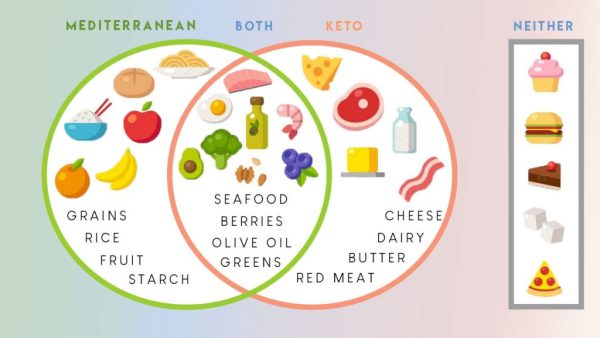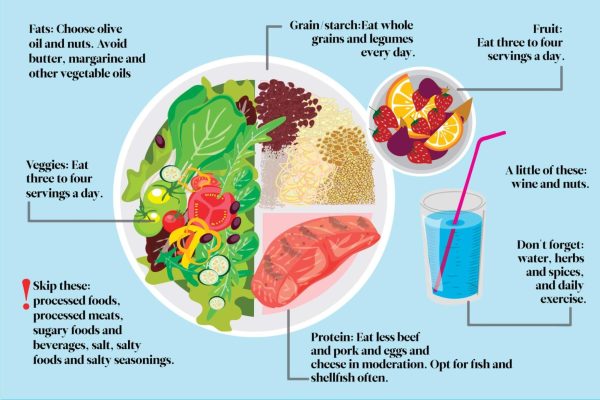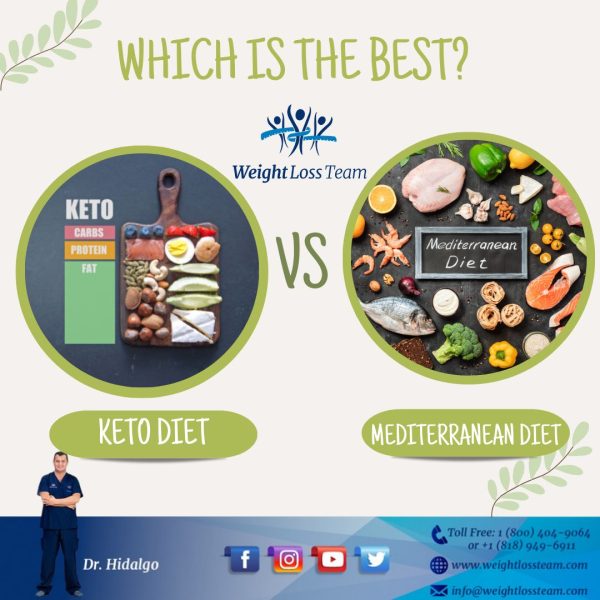In the world of dieting, countless plans promise effective weight loss, improved health, and increased energy levels. Among these, the keto diet and Mediterranean diet have gained significant popularity. While they both offer many benefits, their primary principles and effects on the body differ significantly. This article will explore similarities, differences, and potential impacts of the keto diet and the Mediterranean diet on overall health and wellness. 
Keto Diet:
The keto diet, short for ketogenic diet, is a low-carbohydrate, high-fat eating plan designed to achieve ketosis – a metabolic state where the body burns fat for energy instead of carbohydrates. Primarily composed of fats (70-80% of total caloric intake), moderate amounts of protein (20-25%), and only 5-10% carbohydrates, the keto diet pushes the body into a state of ketosis, leading to rapid weight loss.
The keto diet has shown promising results in aiding weight loss, particularly for those struggling with obesity or excessive body fat. Research suggests that the diet can also be beneficial in managing certain medical conditions such as epilepsy, polycystic ovary syndrome (PCOS), and type 2 diabetes. By reducing carbohydrate intake and limiting blood sugar spikes, the keto diet may help regulate insulin levels and enhance metabolic health.
Critics argue that long-term adherence to the keto diet can be challenging, as it restricts several food groups, resulting in potential nutrient deficiencies. The absence of fiber-rich foods including fruits and certain vegetables could impact gastrointestinal health and overall digestive well-being. Additionally, consuming high levels of saturated fats, common on the keto diet, may increase the risk of cardiovascular diseases.
Mediterranean Diet:
Originating from the dietary patterns of countries bordering the Mediterranean Sea, the Mediterranean diet focuses on whole, unprocessed foods abundant in fruits, vegetables, whole grains, legumes, and lean proteins. It emphasizes healthy fats like olive oil and incorporates moderate amounts of dairy, fish, and red wine in moderation. This longevity reduces inflammation and improves heart health.
The Mediterranean diet offers a host of health benefits, including a reduced risk of heart disease, stroke, certain cancers, and chronic illness. The diet’s emphasis on plant-based foods provides essential nutrients, vitamins, minerals, and antioxidants, thus supporting overall well-being. Research also linked the Mediterranean diet to improved cognitive function, weight management, and a decreased risk of depression.
While the Mediterranean diet encourages healthy and balanced eating habits, it may not be as effective for rapid weight loss as the keto diet. Furthermore, individuals seeking carbohydrate restrictions may find the Mediterranean diet more challenging due to its inclusion of whole grains, legumes, and moderate intake of fruits. 

Choosing the Right Diet For You:
Every individual is unique, and a sustainable diet should consider personal health goals and preferences. Consulting a healthcare professional or registered dietitian can help determine the most suitable approach based on one’s specific needs, dietary restrictions, and lifestyle factors.


















